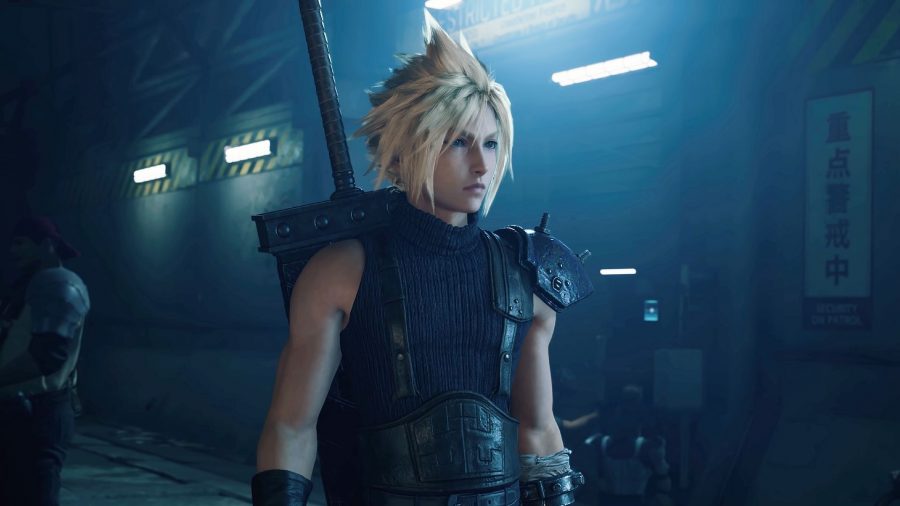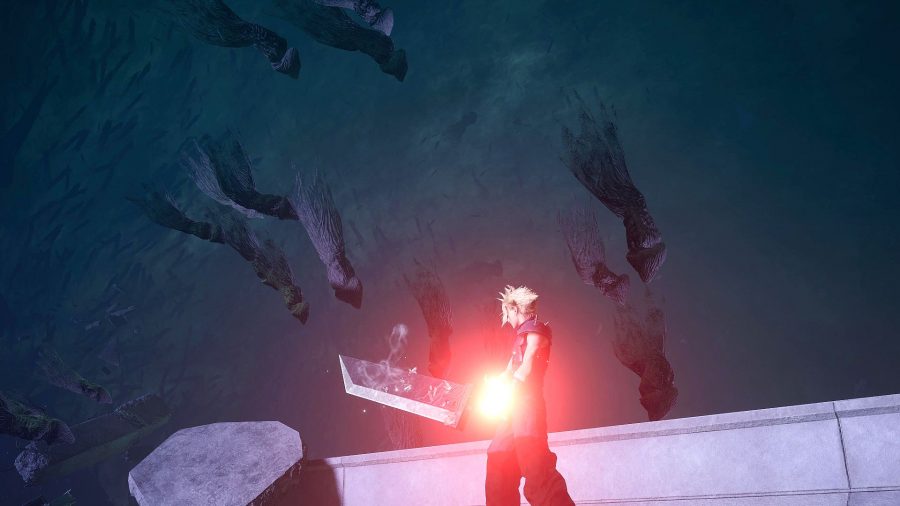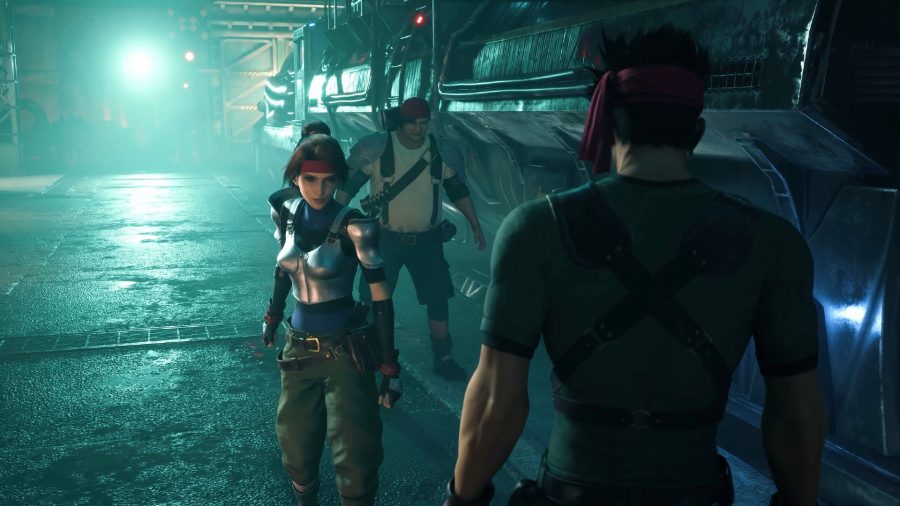Final Fantasy VII fans were expecting the 2020 Remake to be a faithful retelling of the original story. Square Enix had other plans: the final few chapters of Final Fantasy VII Remake wildly diverge from the original’s ending, introducing far-reaching consequences for the lore and inciting plenty of outrage from some players as a result. ‘It’s a cop-out’, they complain; ‘just a cheap way to extend the narrative’. They’re wrong. The new ending is utterly inspired, a perfect reimagining of a historic title.
Before we dig through all the details, we should flag that there are some major plot spoilers for both FF7 and its remake ahead – you’ve been warned. And in case you’re still on the fence about picking this up, you can read our Final Fantasy 7 Remake review here.
The plot of Final Fantasy VII Remake mostly follows that of the original anime game until the team escapes from Shinra headquarters. But along the way, there are inklings that something is different this time around, there are forces at work that we’ve never seen before: the Whispers of fate.
These ghostly figures are present when the Sector 7 plate collapses, slowing down Cloud, Tifa, and Aerith so they can’t save the district’s residents. Later, Sephiroth stabs Barret through the chest, killing him – this certainly never happens in the original – and to correct this divergence, Barrett is then resurrected by these mysterious Whispers.
Once you defeat the Whispers and Sephiroth, something feels different. The Avalanche members that died in the original are injured, yet somehow still alive. The biggest twist of all, though, comes at the very end of the game. In FF7 prequel Crisis Core: Final Fantasy VII, Cloud’s best friend Zack Fair is gunned down by Shinra Soldiers, leaving his Buster sword to Cloud. But in the Remake universe, Zack instead defeats every last soldier, and walks towards Midgar with Cloud on his shoulder, surviving something he was never meant to.
As we play through the game, we’re remaking history
It’s a sign that something has fundamentally changed; the previous timeline has been shattered, leaving an open ended path for the future – and the freedom for Square Enix to take the next parts of Remake wherever it wants.
The ‘Remake’ in the title, then, hides a second meaning: as we play through the game, we’re literally remaking history. It’s no surprise the twist is controversial. The original Final Fantasy VII is widely considered to be one of the best stories in video games, so why mess with it? But this subversion is just as masterfully written as the original game. By changing things up, FF7R director Tetsuya Nomura and his team are able to preserve the integrity and quality of FF7, while immortalising a fresh take on its story.
We already know where the original Final Fantasy VII storyline leads, all the way up to the Advent Children movie and beyond, so why not try something totally out of left field? If Final Fantasy and Nomura are known for one thing, it’s their experimental storytelling: the way they craft complex emotional narratives that break down complicated concepts and characters.
Remake uses the player’s nostalgia to take them on a new journey
Remake takes the player’s nostalgia for the original plot and desire to revisit a beloved story, and uses it to take them on a new journey. As you defeat the Whispers of fate, which are trying to keep everything the same as it used to be, you slowly begin to open up a whole world of possibilities for the future.
That isn’t necessarily a good thing for the protagonists, though, since it also benefits Sephiroth. In the original Final Fantasy VII, Sephiroth dies at the end. He never sees his plans come to fruition, and the Sephiroth you meet in FF7R seems to know the fate of the original.
Nobody can predict what comes next. FF7 ends with the destruction of fate itself, leaving the door wide open for the next instalment of this remake – anything could happen. Aerith might not die, Tifa could die in her place, or the ending could be much happier than it was in the original game, which saw the team triumph but lose key members along the way.
Alternatively, everything could go wrong and our heroes could find themselves in a much darker place than if they’d simply stuck to the script. Isn’t that the beauty of a twist, though? Now that anything is possible, we’re invested in these characters’ fates all over again. As we anticipate the journey ahead, no matter where it takes us, I’m satisfied the story’s in safe hands.




